’47 Ronin’ revolves around a band of these 47 samurai who take on the task of avenging their lord. When the beloved feudal lord of Ako, Lord Asano, is made to take his own life through treachery and his samurai branded as “ronin,” or masterless samurai, they band together to bring the culprits to justice. Leading them on this mission is Oishi, a man of honor and integrity, and Lord Asano’s right-hand man. But the samurai’s way is fraught with danger, and not just of the mortal kind — witchcraft and demonic beasts stand in front of them as well.
Aiding them to deal with these fantastical elements is Kai, a half-Japanese and half-English man who was taken in by Lord Asano as a boy after his fateful escape from the demons who raised him. Directed by Carl Rinsch, the 2013 film features a stellar cast that includes Keanu Reeves, Hiroyuki Sanada, Tadanobu Asano, Rinko Kikuchi, and Ko Shibasaki. ’47 Ronin’ is a fictionalized version of the historical account of the forty-seven ronin who avenged their master in Japanese history. If you enjoyed the film’s premise, then we have a few similar recommendations that we believe you might enjoy.
8. Dracula Untold (2014)
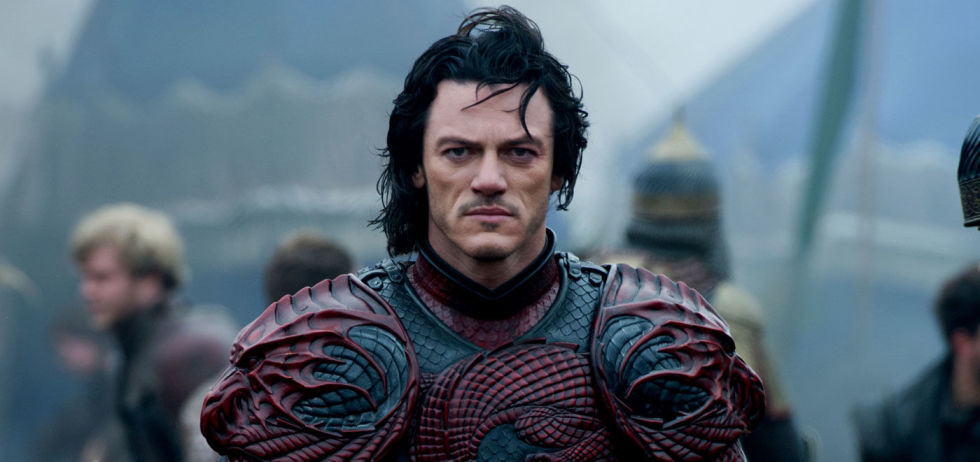
Directed by Gary Shore, ‘Dracula Untold‘ is a fictionalized account of Vlad III, Prince of Wallachia — who was also known as Vlad the Impaler — one of the most important rulers in Romanian history, much like ’47 Ronin.’ The story follows Vlad (Luke Evans), who is peacefully ruling Wallachia after being a royal ward of the Ottoman Empire and a fierce warrior in their army. But when the Ottomans come knocking on Wallachia’s doors again and demand 1000 boys as tribute, Vlad chooses to fight the Ottomans rather than give in to their demand. However, Wallachia’s army isn’t strong enough to repel the Ottomans, so Vlad seeks help from a monster who turns the Prince into something monstrous himself.
7. Hara-Kiri: Death of a Samurai (2011)
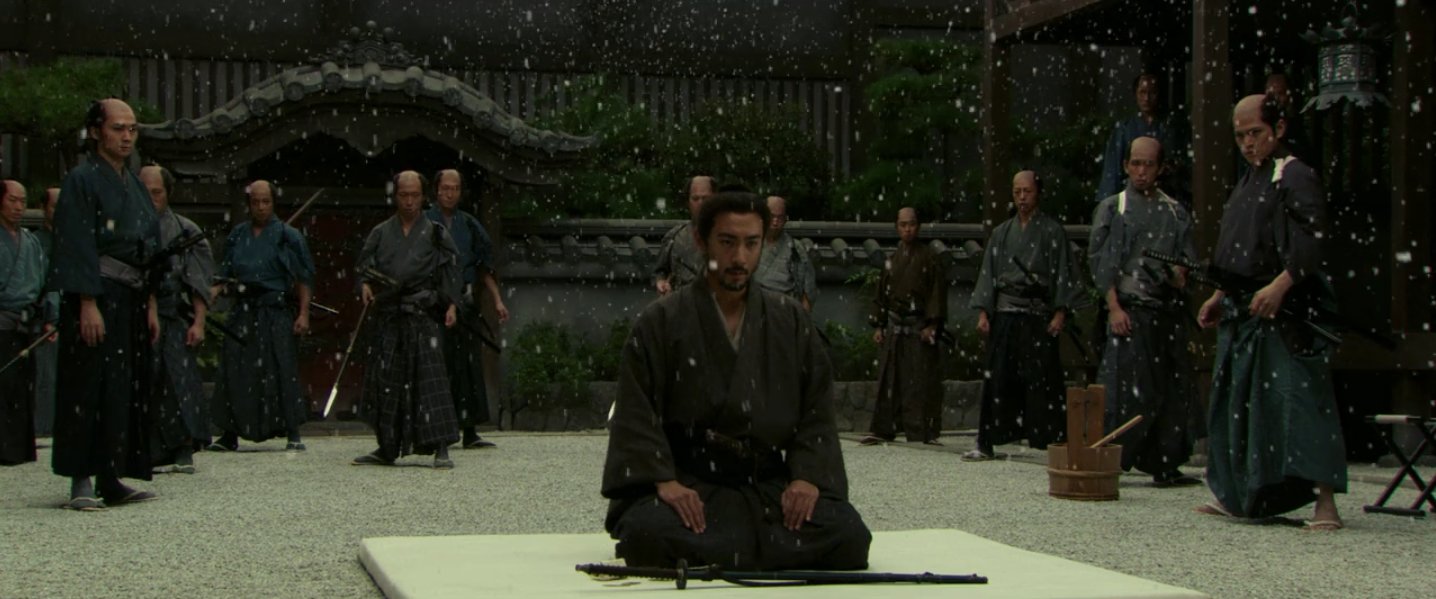
One of the most important aspects that have been historically attributed to the samurai is the concept of honor. Losing face, either through their conduct or in battle, and dishonoring themselves and their master is perhaps the greatest crime that a samurai can commit. To atone for it, if allowed, many commit seppuku or hara-kiri, which is a ritualistic suicide. Seppuku and honor are intertwined in ’47 Ronin’ and are at the core of the storytelling, as they are in ‘Hara-Kiri: Death of a Samurai.’
Directed by Takashi Miike, the Japanese-language period drama film revolves around Tsukumo Hashiro, an aging samurai who requests to perform seppuku from the local lord’s retainer after his clan loses its status. While mulling over his request, the retainer recounts to Hashiro another samurai who came to request the same a year ago but was actually looking to defraud them of three Ryo. What follows is an epic tale about the true meaning of honor and the consequences of straying from the path of Bushido.
6. Blade of the Immortal (2017)
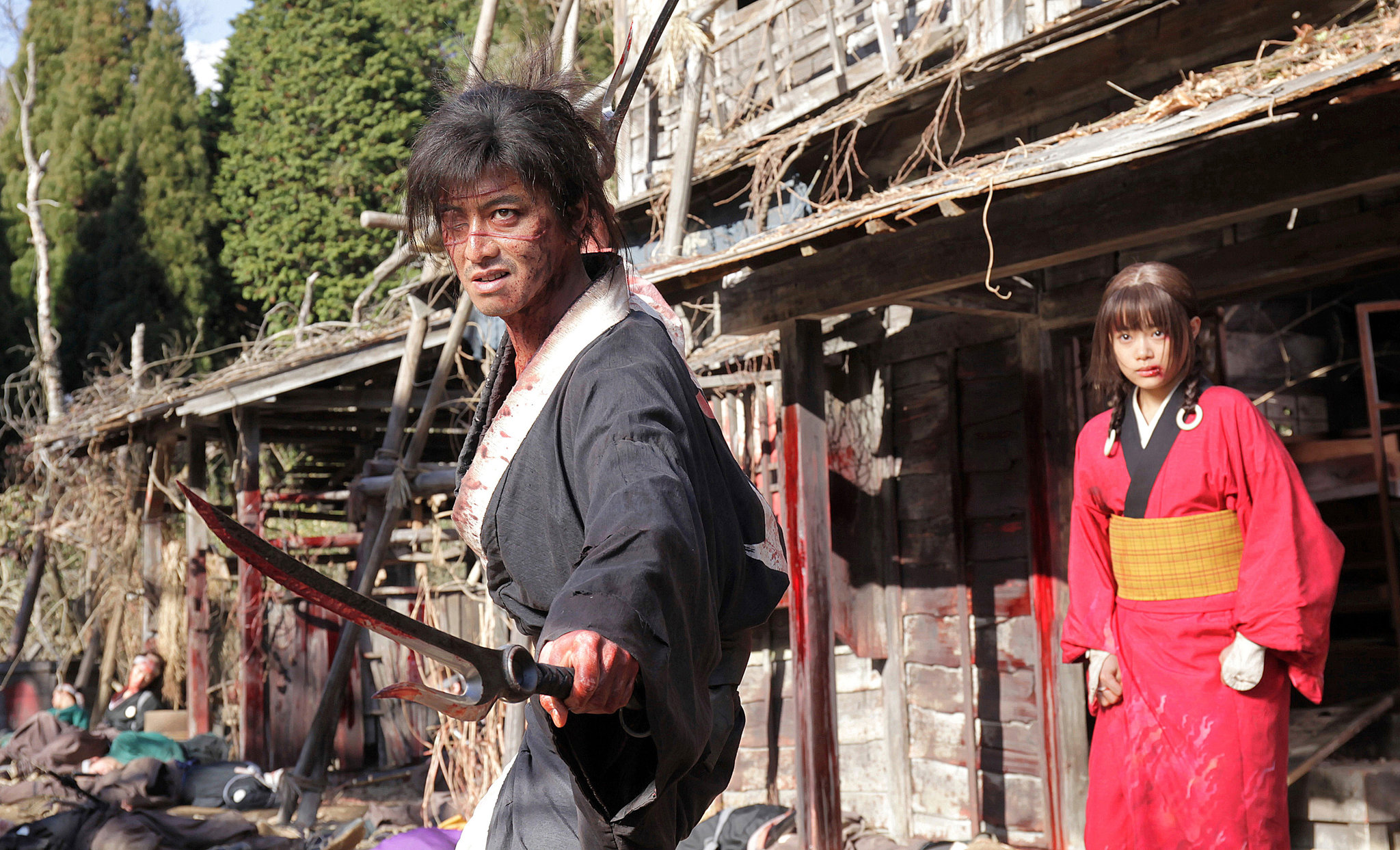
Magic is a big part of ’47 Ronin,’ with witchcraft being the cause of Lord Asano’s death. To fight this, Kai uses the magic that was taught to him by the Tengu, reclusive demonic monks who saved his life when he was a baby. Similar to that is the protagonist of ‘Blade of the Immortal,’ who after being saved by a passerby through “sacred bloodworms” becomes immortal. Directed by Takashi Miike, the film revolves around Manji (Takuya Kimura), a ronin, who after becoming immortal goes from one fight to the next.
But when a young girl asks him to be her bodyguard as she goes on a quest for revenge, Manji feels a stirring in his despondent soul that he hasn’t felt in over half a century. ‘Blade of the Immortal’ is based on the eponymous manga series by Hiroaki Samura.
5. Rurouni Kenshin (2012)
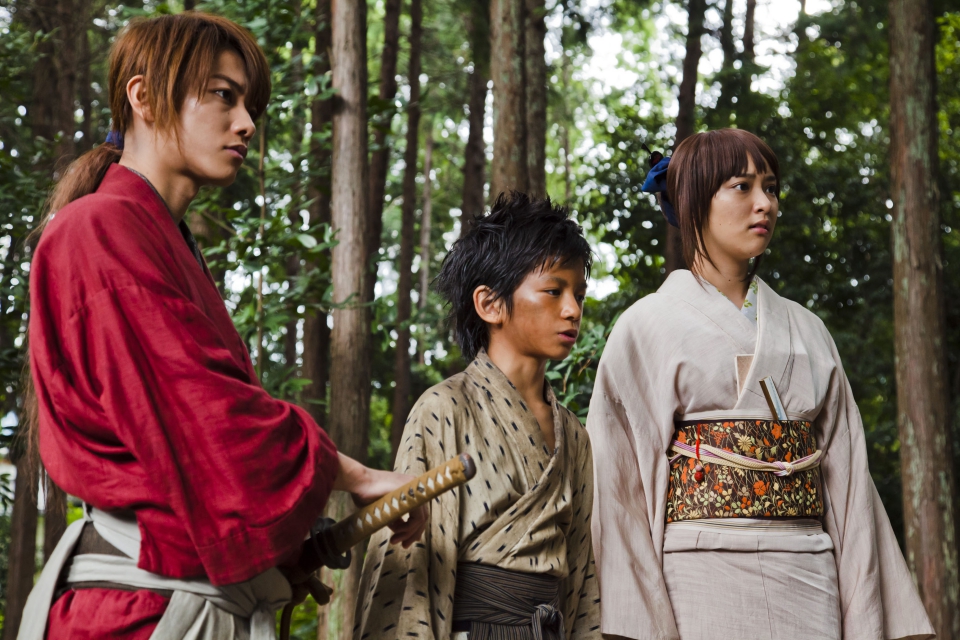
Based on the eponymous manga series by Nobuhiro Watsuki, this Keishi Otomo directorial sees Himura Kenshin (Takeru Satoh), a wandering samurai take on a corrupt businessman who runs a drug business on the side. Though outnumbered, Kenshin overwhelms his opponents with superior skills but they keep coming back, mainly due to the fact that the swordsman leaves them alive as he’s vowed never to kill again. But when his companion’s life is in mortal danger, Kenshin becomes willing to break his vow.
Both Kenshin and Kai, from ’47 Ronin,’ are quite similar as both of them had vowed never to use their skills to take another’s life. But circumstances beyond their control force them to break this vow.
4. 13 Assassins (2010)
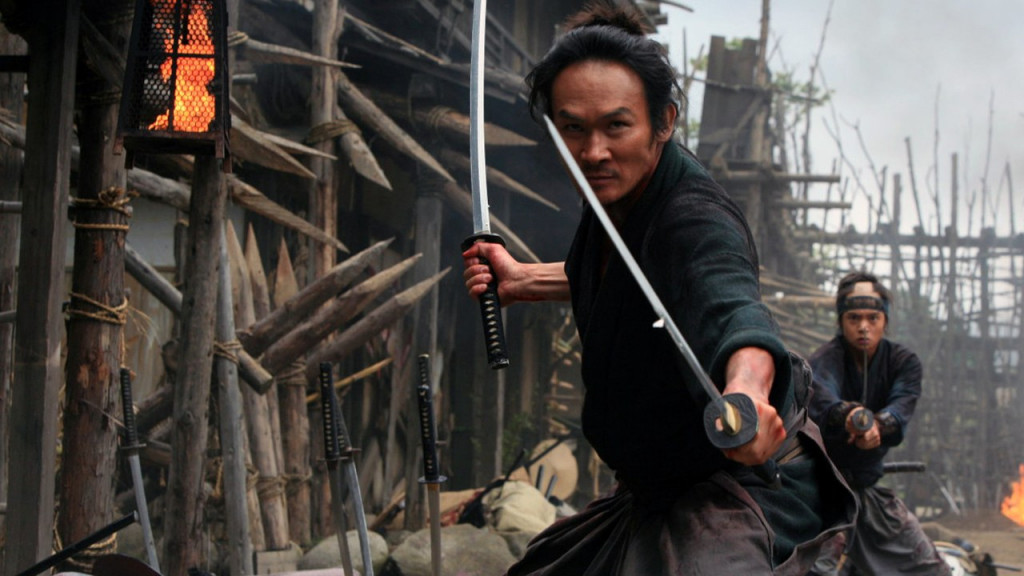
’13 Assassins’ follows closely behind ’47 Ronin’ with its depiction of a group of samurai (and one hunter) traveling across Japan on a suicide mission to avenge their master. Almost in the same vein, the film starts with a feudal lord committing seppuku in protest against the Shogun who refuses to take action against a corrupt and violent feudal lord. To seek justice for his master’s death, as well as to prevent civil war in Japan, Shimada Shinzaemon (Koji Yakusho) leads his men into battle. ’13 Assassins,’ directed by Takashi Miike, is a remake of Eiichi Kudo’s 1963 film of the same name.
3. The Last Samurai (2003)
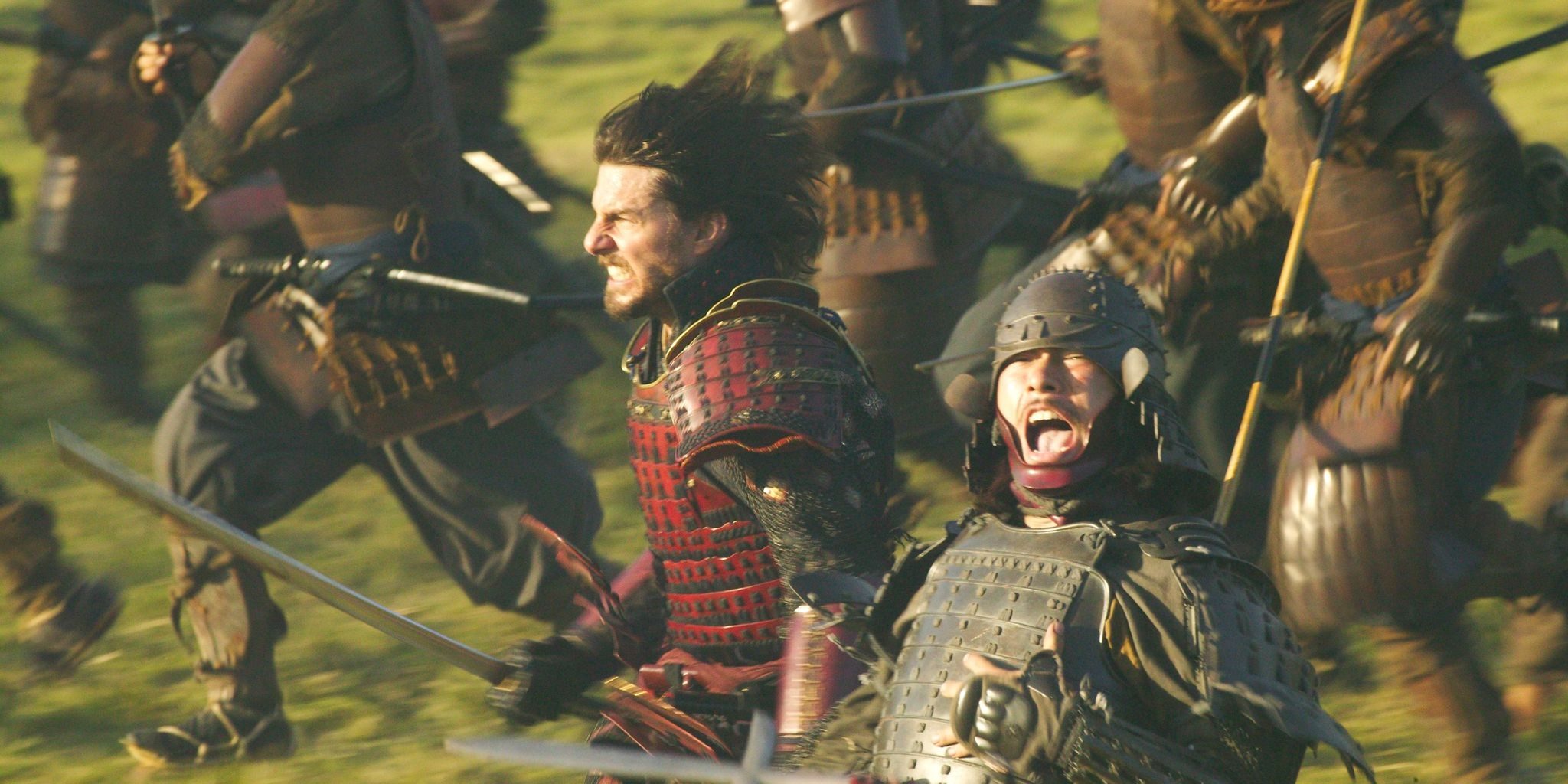
Set in 1876, ‘The Last Samurai‘ follows the Westernization of Japan, with guns being added to the Emperor’s army. With each passing day, the samurai who are rooted deep in their traditional warfare practices, are close to becoming redundant unless they themselves adapt and join the Emperor’s army. To train this new army in the use of guns, US Army Captain Nathan Algren (Tom Cruise) is brought to Japan.
During one such training exercise, rebel samurai attack the army and capture Algren. But while living with the samurai clan, Algren is taught the ways of Bushido, which gives him a new perspective on the warriors and their way of life. Much like how Kai is an outcast for his English ancestry but plays a pivotal role in the events of the story in ’47 Ronin,’ so too does Algren in this Edward Zwick directorial.
2. The 47 Ronin (1941)
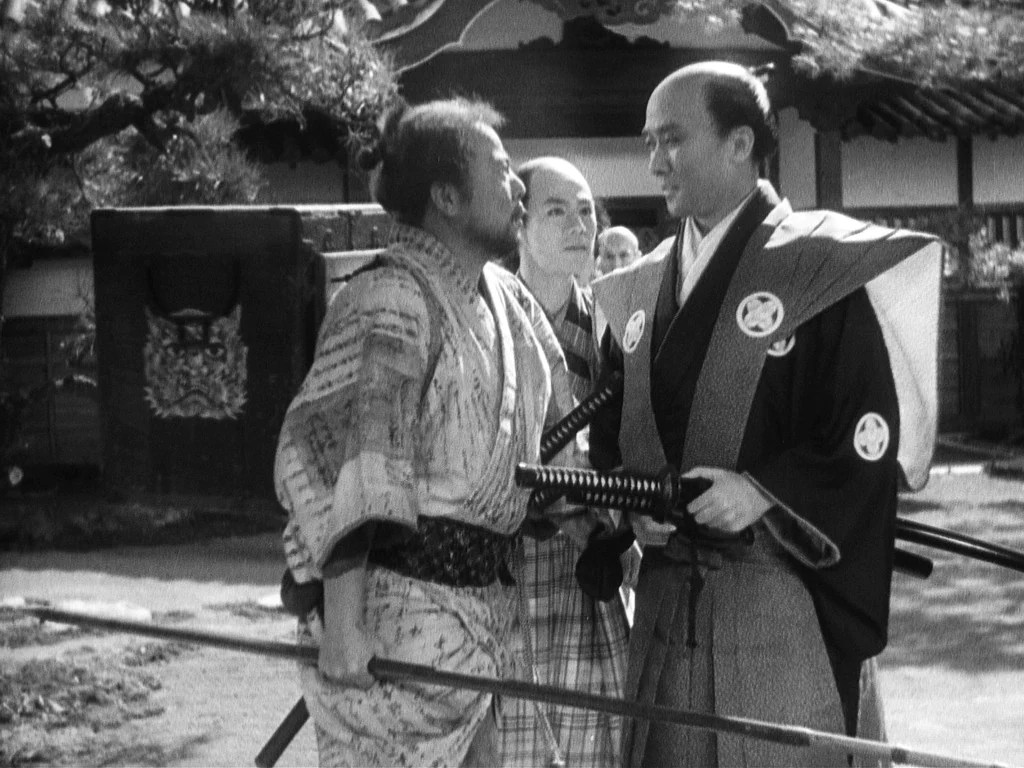
The original adaptation of the tale of the forty-seven ronin, ‘The 47 Ronin’ revolves around much the same storyline as ’47 Ronin’ — albeit without the fantasy elements. The film sees Oishi Kuranosuke (Chōjuro Kawarasaki) lead forty-six of his men to kill Lord Kira Yoshinaka (Kazutoyo Mimasu), a vile and corrupt man who insulted Lord Asano Naganori (Yoshizaburō Arashi), because of which the latter struck at him with a sword. For this transgression, Lord Asano is forced to commit seppuku, and his samurai are branded as ronin. ‘The 47 Ronin,’ directed by Kenji Mizoguchi, is a more historically accurate representation of the events that transpired in 1703.
1. Yojimbo (1961)
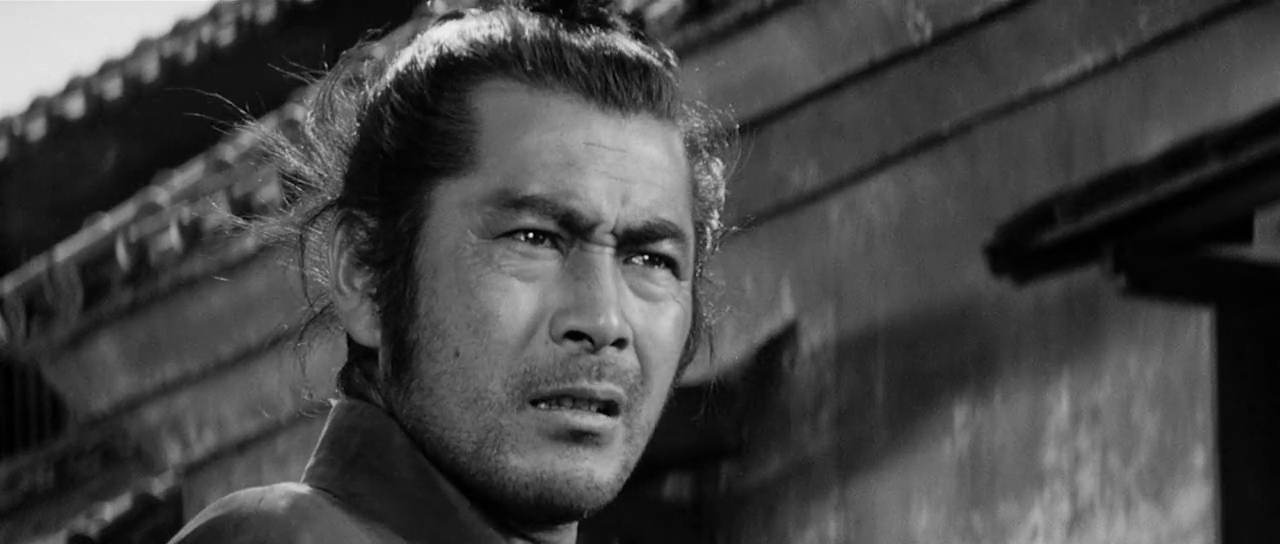
‘Yojimbo,’ directed by the legendary Akira Kurosawa, revolves around a ronin who takes on the name Sanjuro Kuwabatake (Toshirô Mifune) when he enters a new town. Two rival, but equally corrupt, businessmen are fighting with each other to have a monopoly on the gambling that is rampant in the town. Sanjuro offers his services as a bodyguard to both the businessmen and cleverly sows the seeds for an all-out gang war. Though not directly related to ’47 Ronin,’ the film once again reminds the audience of the true meaning of honor that the samurai cherished over all.
Read More: Best Martial Arts Movies

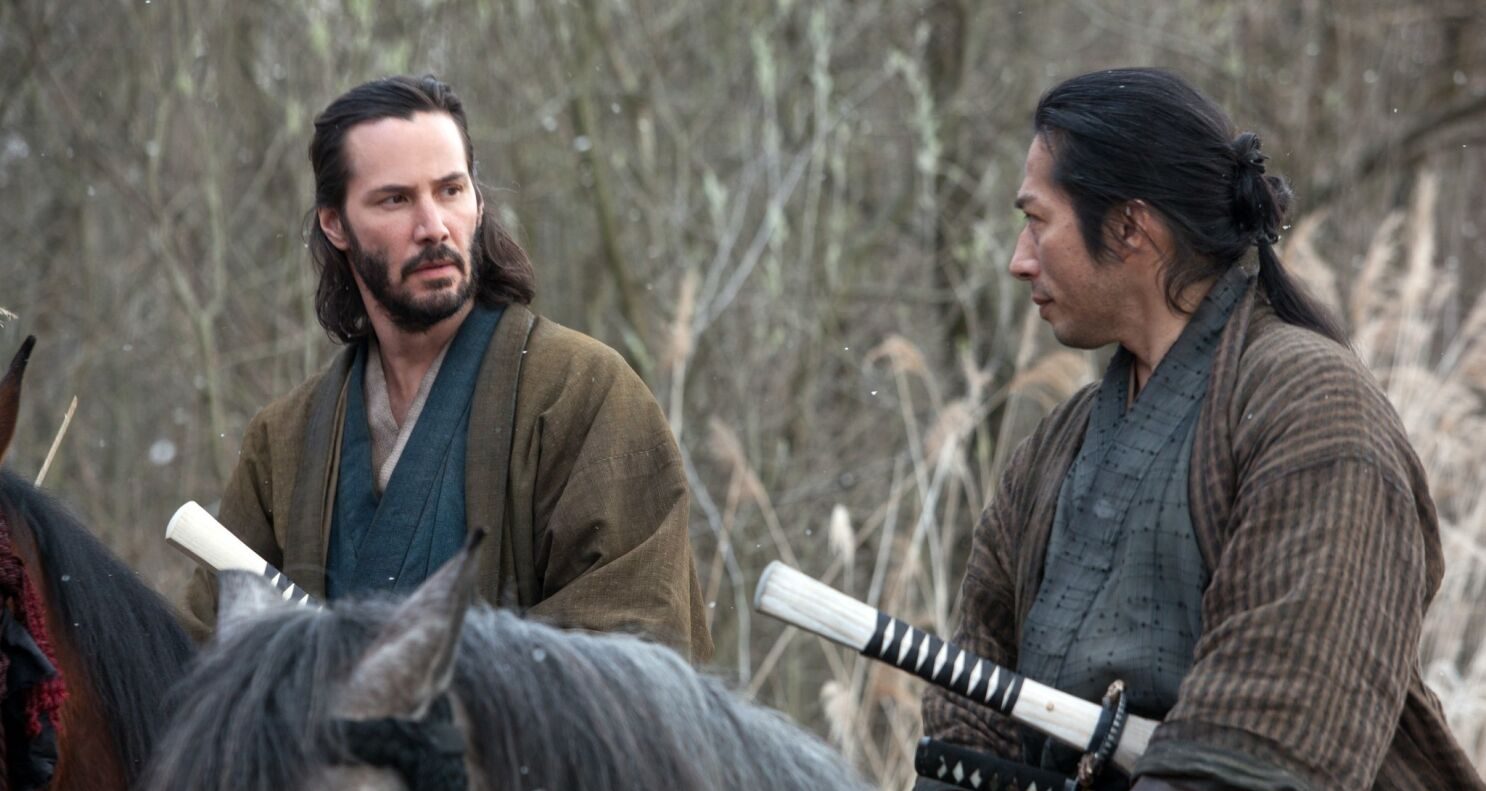
You must be logged in to post a comment.